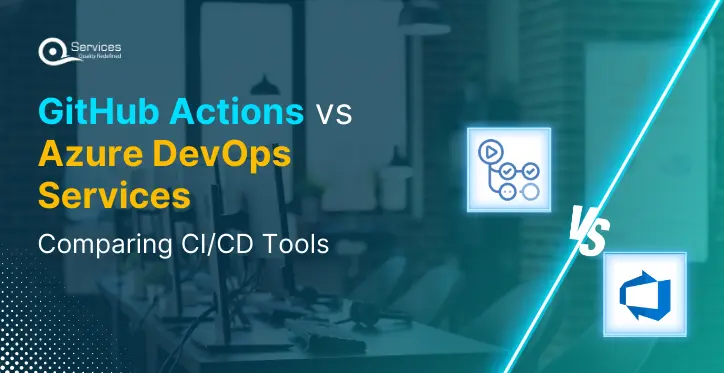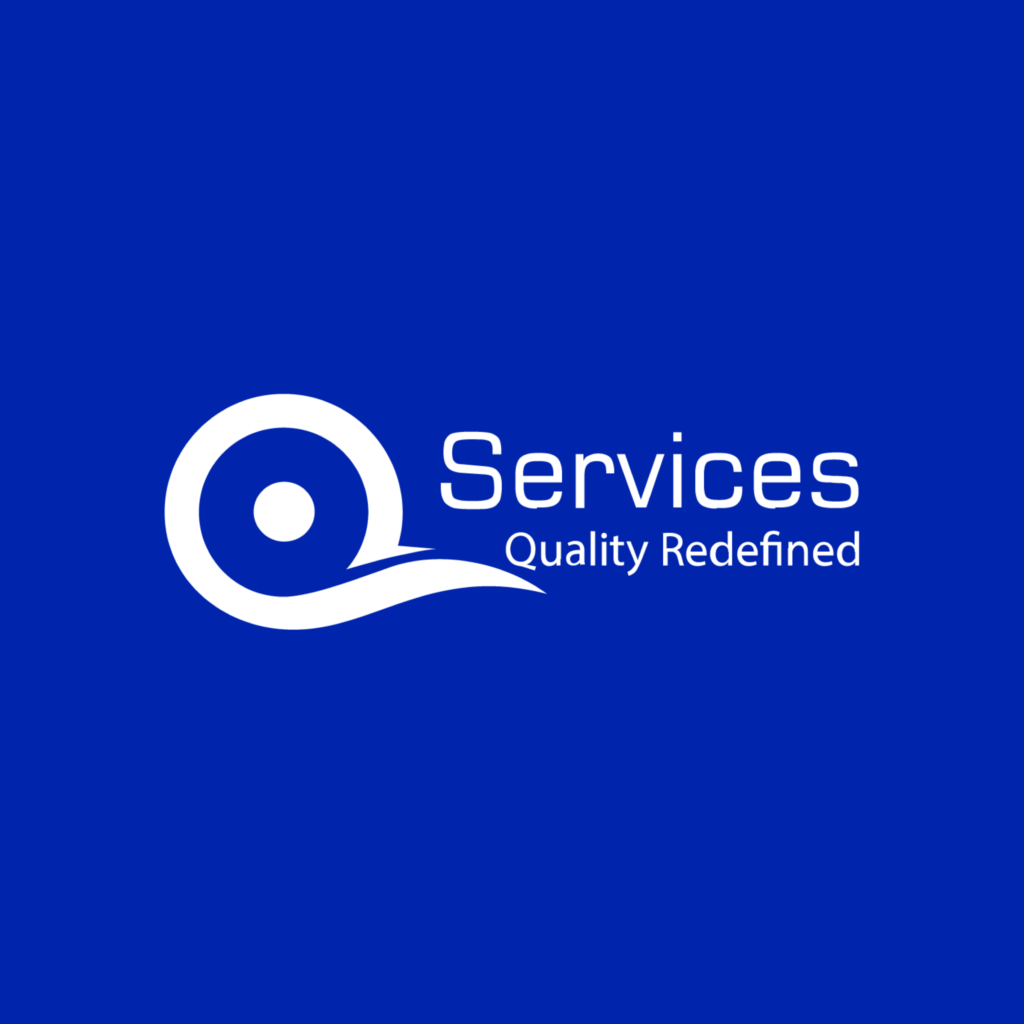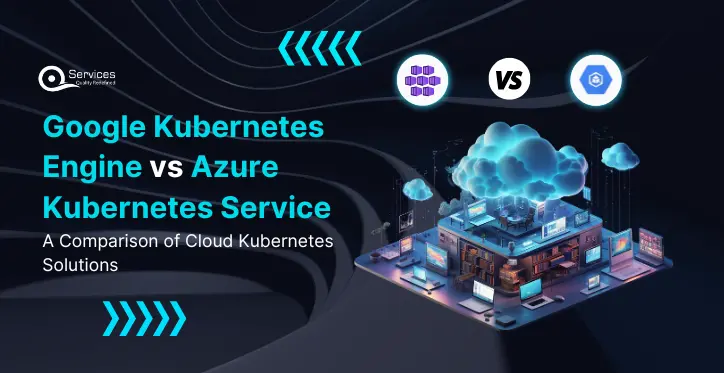
Rewards
.





CANADA
55 Village Center Place, Suite 307 Bldg 4287,
Mississauga ON L4Z 1V9, Canada
Certified Members:
.



Home » Why .NET core is the Ultimate Solution for Modern App Development – Highlighting Its Features & Advantages

Selecting the right development framework is pivotal for the success of any project. A framework provides structured tools and guidelines that streamline coding, enabling more efficient code writing with fewer errors. This efficiency allows developers to focus on solving core application challenges without being bogged down by technical intricacies. For decision-makers, adopting a robust framework like .NET Core can significantly enhance productivity, reduce costs, and ensure sustained competitiveness in the market. In this blog, we will explore one of the leading frameworks in modern app development, .NET Core, highlighting its key features and numerous advantages.
.NET Core, an open-source, modular, and cross-platform framework developed by Microsoft, revolutionizes modern application development. It offers developers a lightweight and flexible alternative to the traditional .NET Framework, supporting deployment on Windows, macOS, and Linux. With its robust command-line interface and integration with NuGet for package management, .NET Core simplifies project creation, building, and deployment tasks.
Launched in 2016, .NET Core aimed to address the limitations of its predecessor and expand beyond Windows, marking a significant shift in Microsoft’s development strategy. Evolving through versions like 1.0 to 3.1 and transitioning to.NET 5 in 2020, the framework has continually improved performance, cross-platform capabilities, and community engagement.
Contrasting .NET Core with the traditional .NET Framework reveals key architectural differences. While .NET Framework remains Windows-centric and monolithic, .NET Core’s modular architecture and cross-platform support make it adaptable to diverse development environments. This shift enhances performance, deployment flexibility, and security features, crucial for modern application demands.
ASP.NET Core, a prominent web development framework under .NET Core, has seen significant adoption, with 19.1% usage among web application developers in 2020. Its popularity stems from cutting-edge design, superior performance, and cross-platform compatibility, making it ideal for modern online applications. Developers increasingly favor ASP.NET Core for its scalability, robustness in microservices architecture, and enhanced security features over its predecessor, ASP.NET.
Get free Consultation and let us know your project idea to turn into an amazing digital product.
.NET Core stands at the forefront of modern application development with its robust features, unparalleled performance, and broad compatibility across operating systems. As businesses and developers seek scalable and high-performing solutions, .NET Core continues to lead by providing a versatile and efficient framework for building next-generation applications. Here are some of notable .NET Core features:
.NET Core epitomizes cross-platform versatility by enabling seamless operation across Windows, macOS, and Linux through abstracted APIs. This unique capability allows developers to write code that runs unchanged across different operating systems, enhancing deployment flexibility and reducing compatibility issues.
Engineered for optimal performance, .NET Core leverages RyuJIT, a next-generation just-in-time (JIT) compiler, to deliver substantial speed enhancements. Coupled with an efficient garbage collector, .NET Core minimizes memory usage and outperforms many other web frameworks in diverse performance benchmarks, ensuring robust application responsiveness.
Numerous real-world applications underscore .NET Core’s prowess in high-performance scenarios. Notable examples include the aspnetcore-realworld-example-app, which adheres to the RealWorld API specifications, and fluentpos, a comprehensive open-source system. These applications demonstrate .NET Core’s capability to handle complex tasks efficiently and reliably.
.NET Core embraces a modular architecture centered on lightweight NuGet packages. This design allows developers to selectively integrate essential components for leaner applications that occupy less disk space and start up more swiftly. Moreover, this modular approach simplifies updates and maintenance of individual modules without disrupting the entire application ecosystem.
.NET Core ensures a cohesive development experience across different platforms by seamlessly integrating with Visual Studio, a premier IDE in the .NET ecosystem. This integration allows developers to utilize familiar tools and workflows regardless of the target platform, promoting enhanced productivity and smoother collaboration within development teams.
With support for various programming languages such as C#, F#, and Visual Basic, .NET Core provides developers with flexibility in language selection based on project requirements and personal expertise. Each language is optimized for performance within the .NET Core framework, enabling developers to leverage their strengths in building efficient and scalable applications.
Here are some advantages of .NET core for App Development:
.NET Core is budget-friendly due to its open-source nature, meaning businesses save on licensing fees. Its efficiency and ability to work across different platforms also cut down on development costs, making it a smart choice for companies looking to maximize their budget.
With a large community of developers, .NET Core benefits from collaborative problem-solving and continuous improvement. This support network not only speeds up development but also ensures that applications stay up to date with the latest advancements in technology.
.NET Core offers remarkable versatility, accommodating a broad spectrum of applications from websites to mobile apps and beyond. Its modular architecture enables developers to scale applications efficiently, adjusting to evolving business needs without necessitating comprehensive system overhauls.
Security remains a top priority with .NET Core, providing robust measures to safeguard sensitive data and ensure secure transactions. Regular updates from Microsoft continuously enhance application security, protecting against emerging cyber threats and instilling confidence in businesses.
Designed to integrate seamlessly with cloud platforms like Microsoft Azure, .NET Core simplifies the development of cloud-based applications. This compatibility streamlines deployment and management, enabling businesses to leverage scalable solutions for their digital transformation.
ASP.NET Core is a flexible, open-source framework designed for creating modern, cloud-enabled applications. It supports the development of web apps, IoT solutions, and mobile backends across Windows, macOS, and Linux. ASP.NET Core simplifies the process of building both web user interfaces (UI) and APIs, ensuring easy testing and seamless integration with popular client-side frameworks.
.NET Core is used to develop powerful backend services for native mobile apps. Developers can use Xamarin along with .NET Core to write code once and deploy it across different operating systems such as iOS, Android, and Windows. This approach helps in improving productivity and simplifying the deployment of applications on various devices.
A notable example is the NBC Sports Next team’s adoption of .NET MAUI for their Sports Engine app in 2022. By leveraging .NET MAUI, they streamlined code sharing across web, mobile, and API layers, expediting feature delivery to market and showcasing .NET Core’s versatility and efficiency in modern application development.
.NET Core 3 introduced robust support for desktop applications on Windows and macOS, including frameworks such as WPF and Windows Forms. Developers appreciate .NET Core for its enhanced performance, scalability, and adaptability compared to previous versions, simplifying the creation and maintenance of native desktop applications tailored to different operating systems.
.NET Core, as the successor to .NET Framework, offers cross-platform capabilities across Windows, macOS, and Linux, enhancing development with improved performance and flexibility. While .NET Framework remains suitable for specific Windows applications, .NET Core’s broader compatibility and modern features make it a preferred choice for contemporary desktop development needs.
.NET Core, a robust and open-source framework developed by Microsoft, serves as a cornerstone for building modern, cloud-native, and interconnected applications. It offers versatility in developing various applications such as web applications, mobile backends, microservices, libraries, and console applications.
A company specializing in .NET Core development provides a comprehensive array of services:
Leveraging .NET Core, they create high-performance and scalable web applications, ranging from single-page applications (SPAs) to intricate web portals.
.NET Core excels in developing microservices, benefiting from its multi-platform compatibility and support for containers.
They specialize in crafting robust APIs that seamlessly integrate with diverse software components.
For businesses seeking to transition from legacy technologies, a .NET Core development company offers expertise in migrating applications to the .NET Core framework.
Beyond development, they provide ongoing maintenance and support services to ensure continuous operation and optimal performance of applications.
Choosing the right .NET Core development company is crucial for the success of your project. The right partner understands your business needs and delivers a solution that meets those needs. They have the technical expertise to build robust, scalable, and secure applications. They follow best practices for coding and testing, ensuring the quality of the final product. Furthermore, they provide ongoing support and maintenance, helping you keep your application up-to-date and running smoothly.
When choosing a .NET Core development service provider, several critical factors should guide your decision:
It’s crucial to select a provider with a strong track record in .NET Core development. Look for teams that demonstrate extensive experience and proficiency in utilizing this technology effectively, ensuring they can handle complex requirements with confidence.
Assess their portfolio to gauge the breadth and quality of projects they have successfully executed. This review provides valuable insights into their capabilities and suitability for your specific project needs, whether it involves web applications, microservices, or API development.
Evaluating the provider’s reputation is critical. Review client testimonials and feedback to gauge their reliability, professionalism, and commitment to client satisfaction. This feedback provides valuable insights into their technical competence and overall service quality.
Effective communication is indispensable for project success. Choose a provider recognized for clear, proactive communication throughout the development cycle. This ensures alignment with your objectives, reduces potential misunderstandings, and cultivates a collaborative partnership.
While cost is a factor, transparency in pricing is paramount. Look for providers offering straightforward and comprehensible pricing models that align with your budget expectations. This transparency fosters trust and enables informed decision-making regarding your development investments.

The future of .NET Core is promising with upcoming features and updates aimed at enhancing performance, security, and cross-platform capabilities. Industry predictions suggest that .NET Core will continue to be a leading choice for app development due to its versatility and robustness. Staying updated with .NET Core not only benefits developers by equipping them with the latest tools and methodologies for efficient coding but also businesses by ensuring their applications are scalable, secure, and future proof. As technology evolves, .NET Core’s adaptability and continuous improvements make it a sustainable choice for application development in the foreseeable future.
.NET Core empowers developers with a versatile toolkit for building robust web, mobile, and desktop applications. Its cross-platform compatibility, enhanced performance, and modular design support rapid innovation and scalability in today’s digital landscape. Embracing .NET Core simplifies development processes and prepares applications for future challenges, ensuring readiness and competitiveness in a dynamic technological environment. Whether you’re embarking on .NET mobile app development, refining web services, or creating native desktop solutions, .NET Core equips you with the tools to succeed and innovate in today’s competitive digital market.

Our Articles are a precise collection of research and work done throughout our projects as well as our expert Foresight for the upcoming Changes in the IT Industry. We are a premier software and mobile application development firm, catering specifically to small and medium-sized businesses (SMBs). As a Microsoft Certified company, we offer a suite of services encompassing Software and Mobile Application Development, Microsoft Azure, Dynamics 365 CRM, and Microsoft PowerAutomate. Our team, comprising 90 skilled professionals, is dedicated to driving digital and app innovation, ensuring our clients receive top-tier, tailor-made solutions that align with their unique business needs.

The demands on modern supply chains have never been higher. Consumer behaviour changes swiftly, e-commerce continues to disrupt traditional models, and global markets present constant unpredictability.

This blog will offer a detailed comparison of GKE vs AKS, examining their features, performance, pricing, and scalability, to help you choose the best Kubernetes service for your infrastructure.

The software development world is transforming rapidly, and it’s been clear that staying competitive requires adapting to advanced technologies. As businesses are striving for more reliable software, the pressure on developers has never been higher. This is where Generative AI software comes into the picture, transforming
Microsoft’s free, open-source .NET Core framework is a cross-platform tool for building modern applications on Windows, Linux, and macOS. It offers excellent performance and scalability, supports languages like C# and F#, and is ideal for cloud-based solutions. Its modular architecture ensures lightweight, efficient apps, enhanced by a vast library ecosystem and strong community support.
The main reason to choose ASP.NET Core over ASP.NET MVC lies in its modern features and cross-platform compatibility. Here’s a concise comparison:
ASP.NET Core:
ASP.NET MVC:
.NET Core is popular for its cross-platform compatibility, high performance, scalability for cloud applications, support for languages like C# and F#, modular architecture for efficient apps, and strong community and library support.
ASP.NET Core features cross-platform compatibility, modular design for efficient development, support for modern web standards, built-in dependency injection, robust security measures, integration with popular client-side frameworks, and high performance through asynchronous programming. These qualities make it ideal for building responsive, secure, and scalable web applications.
Schedule a Customized Consultation. Shape Your Azure Roadmap with Expert Guidance and Strategies Tailored to Your Business Needs.
.





55 Village Center Place, Suite 307 Bldg 4287,
Mississauga ON L4Z 1V9, Canada
.




Founder and CEO

Chief Sales Officer
